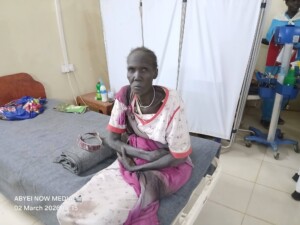GERD – ‘Sudan must safeguard 20 million people downstream’
Sudan’s transitional government has made its position clear with regard to the Grand Ethiopian Renaissance Dam, as negotiations on the issue between Sudan, Egypt, and Ethiopia remain at a deadlock. The Khartoum government’s position, which has been circulated widely on social media, says that “while Ethiopia negotiates for its right for socio-economic development, and Egypt for the right of its water share, Sudan negotiates to safeguard the lives of more than 20 million people living downstream the GERD”.
 Building the Grand Ethiopian Renaissance Dam (File photo: MoFA Ethiopia)
Building the Grand Ethiopian Renaissance Dam (File photo: MoFA Ethiopia)
Sudan’s transitional government has made its position clear with regard to the Grand Ethiopian Renaissance Dam, as negotiations on the issue between Sudan, Egypt, and Ethiopia remain at a deadlock. The Khartoum government’s position, which has been circulated widely on social media, says that “while Ethiopia negotiates for its right for socio-economic development, and Egypt for the right of its water share, Sudan negotiates to safeguard the lives of more than 20 million people living downstream the GERD”.
This clear statement of policy echoes remarks by the Minister of Irrigation and Water Resources, Yasir Abbas, in a press conference at SUNA on April7 following his participation at the fruitless negotiations in Kinshasa on the issue of Grand Ethiopian Renaissance Dam (GERD). He warned that the filling of Renaissance Dam without agreement will directly threaten Sudan and endanger the lives of 20 million citizens living below the dam, adding that “this statement is not a matter of propaganda and media exaggeration, but rather a description of the facts”.
The statement highlights that “the filling for the first year has already been completed in July 2020, (unilaterally), without agreement, raising even more concerns in the region.
The Republic of the Sudan is an important riparian country to the Blue Nile, located immediately downstream of the GERD, and thus stands to be impacted the most by this large dam. Accordingly, Sudan feels obligated to inform the world community of its position, and views on GERD and on the ongoing negotiations.
“The Blue Nile is a sacred river our region is blessed with and shared by the three countries of Egypt, Ethiopia, and Sudan. It is an inseparable part of the history, culture, economy, and conscious of the people of our region. For Sudan, the Blue Nile is the lifeline for most of Sudan’s 40 million people. It serves 70 per cent of the irrigated land in the country, and as such represents the heart of the agricultural activities on which the country’s population and economy are largely dependent.”
Sudan has long believed in and advocated for regional cooperation and partnership over the Blue Nile as well as the Nile River as a whole. This is demonstrated by Sudan’s positions and actions since its independence as a leader in all regional initiatives and programs around the Blue Nile and the Nile River as whole. The GERD will completely change the flow regime of the Blue Nile by flattening its hydrograph. With this gigantic size (1.5 times bigger than the annual flow of the Blue Nile), the GERD risks causing significant negative impacts on Sudan if not properly designed, constructed, filled, and operated, the Khartoum government insists.
“These impacts range from threatening the lives and safety of millions of Sudanese citizens living directly downstream the GERD, to the operational safety of the Sudanese dams, to the flood-plain agricultural system of the country, and to the socioeconomic and environmental impacts along the Blue Nile and downstream the main Nile River all the way up to the border with Egypt.”
Khartoum asserts that for the positive impacts to be realised and for the negative impacts to be mitigated there has to be an agreement in place with Ethiopia on how to fill and operate the GERD, “otherwise, the GERD stands to cause substantial risks to Sudan”.











 and then
and then